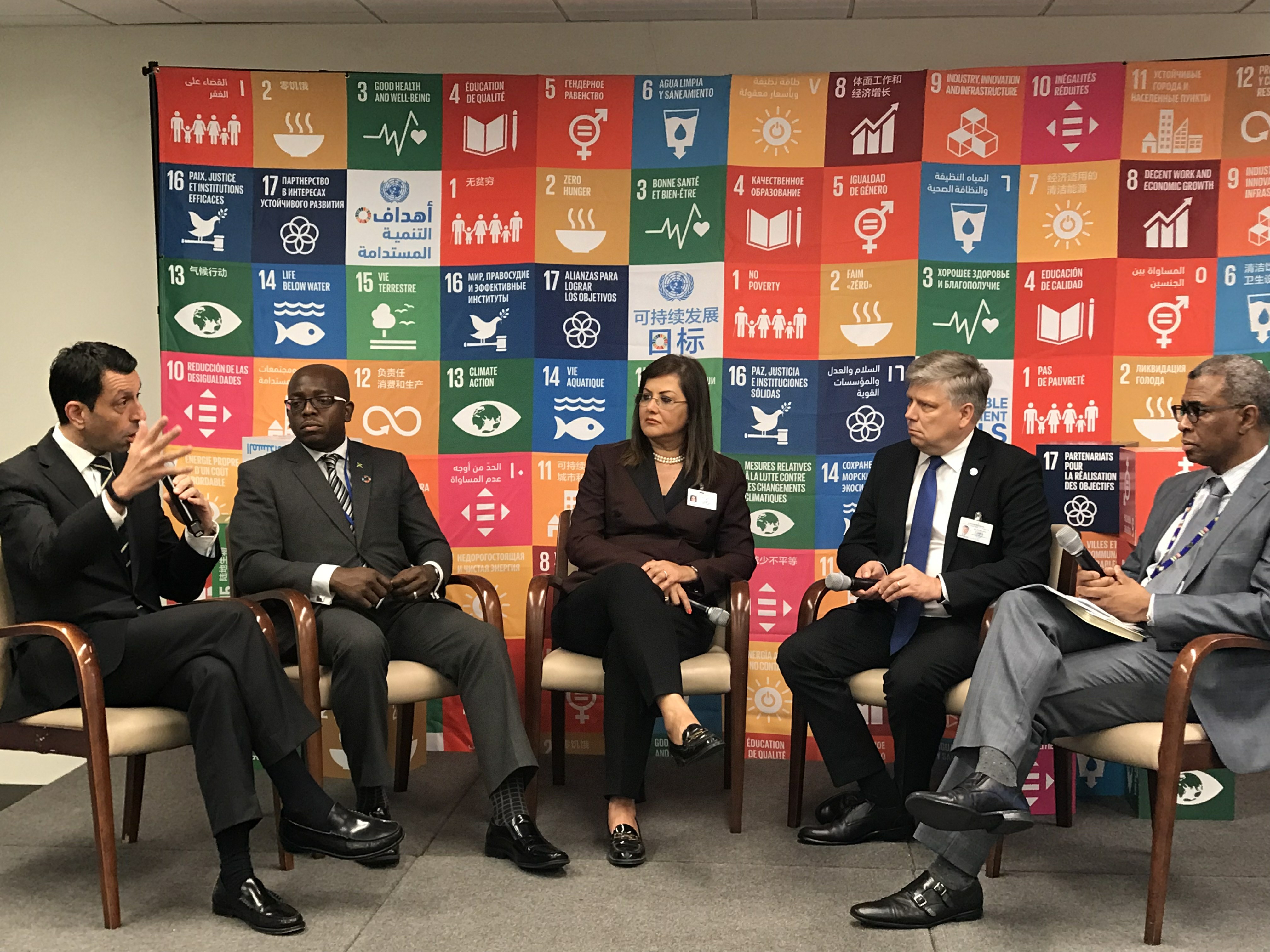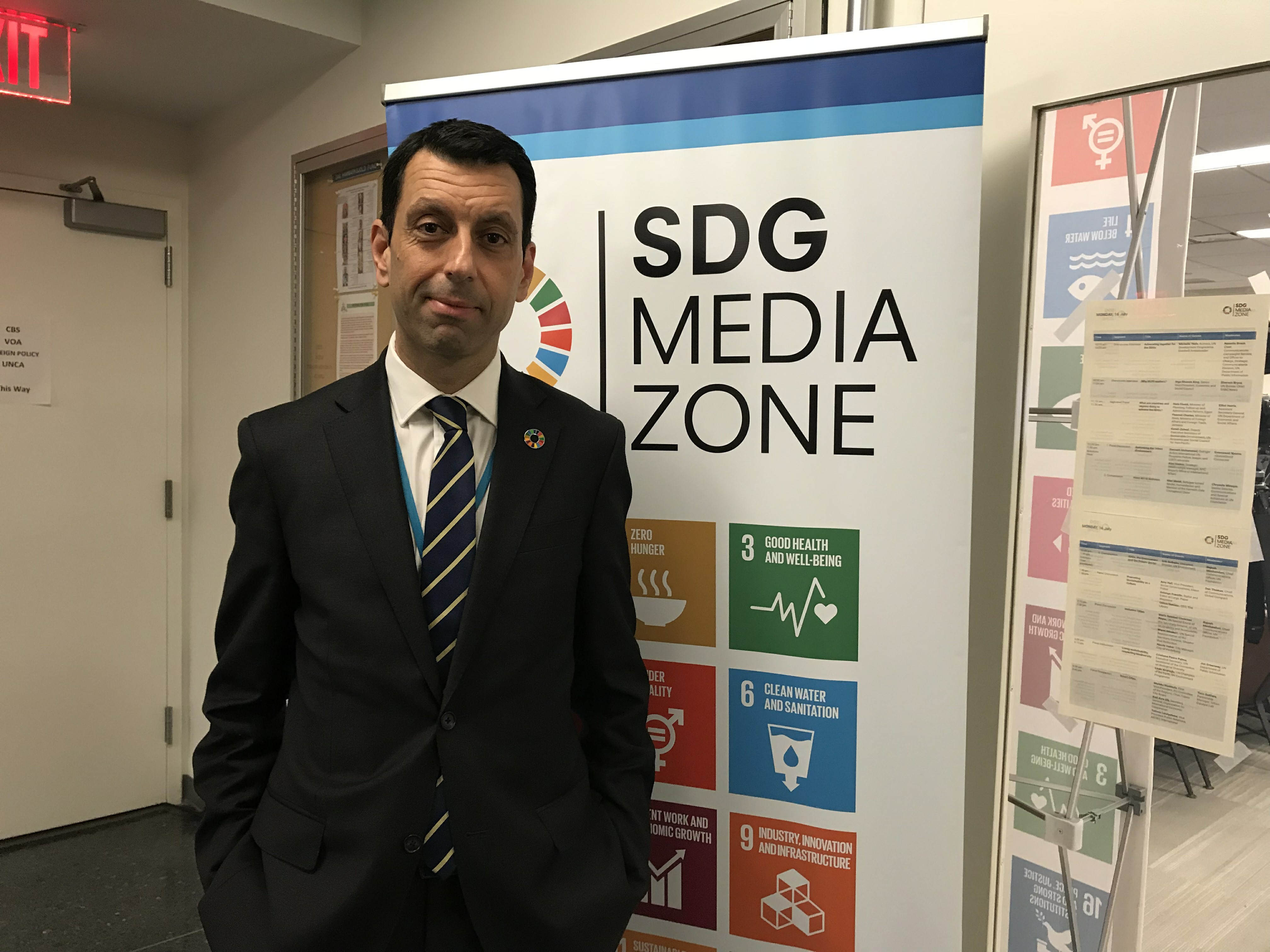
UN ESCAP deputy executive secretary Kaveh Zahedi (L1) attends a panel discussion.(Photos: Yin Miao)
New York (People’s Daily) – “China has made remarkable progress in achieving the UN Sustainable Development Goals and promoting the Asia-Pacific sustainable development goals, as well as the economic cooperation and regional integration processes,” said Kaveh Zahedi, UN ESCAP deputy executive secretary, in an exclusive interview with People’s Daily.
Zahedi said that poverty reduction is the first goal of sustainable development of the United Nations. The Chinese government has lifted millions of people out of poverty. At any level, this unprecedented achievement is very remarkable. He said, "China's efforts in poverty alleviation are moving in the direction of leaving no one behind, which coincides with the fundamental purpose of the UN sustainable development agenda."
“For example, in focusing on the development of the rights of persons with disabilities, UNESA and China have been working closely together to ensure that no disabled person is left behind in regional economic growth and sustainable development goals. Increase investment in barrier-free access, social security, and job creation for people with disabilities, and has achieved great success,” Zahedi said. “This clearly targeted policy applies equally to other vulnerable groups. "
Zahedi said that China also plays an important leading role in promoting economic cooperation and integration in the Asia-Pacific region. The most important example is the “Belt and Road Initiative”. He said that the “Belt and Road Initiative” is an inclusive initiative and its membership is open to all interested countries. Infrastructure interconnection is a priority area for the “Belt and Road Initiative”. Interconnection includes not only the interconnection of hardware infrastructure, such as roads and routes; but also the interconnection of software such as policies, laws, and regulations. Perhaps the most important thing is the communication between the people of all countries.
Zahedi said, "The analysis of the UN ESCAP has found that the 'Belt and Road' can increase the GDP level of participating economies by nearly 6 percent and is expected to achieve GDP growth of more than 10 percent in several economies. Our analysis also shows that if we do not link sustainability goals to the 'Belt and Road Initiative ', it may weaken some results."

Zahedi believes that regional economic cooperation and integration and sustainability and sustainable development are two parallel tracks that complement each other and promote each other. He said that without the sustainability of cooperation, it is impossible to achieve a complete success in regional cooperation and integration. Vice versa, without the necessary connectivity brought about by regional cooperation and integration, it is impossible to achieve sustainable development goals, whether it is energy connectivity, transportation connectivity, or information technology connectivity.
Zahedi said that given the size of the “Belt and Road Initiative”, this initiative can not only contribute to the revival of global trade and investment, it can also increase the participation of landlocked and developing countries in global value chains. If guided by the right methods and techniques, it can also provide the basis for a low-carbon, climate-adapted economy across the region.
Throughout the Asia-Pacific region, innovation is driving the development of emerging industries and infrastructure, and countries are moving in the direction of achieving the 2030 Sustainable Development Goals. Zahedi said that in the past three years, the Asia-Pacific region has made some welcome progress, including countries that haven’t developed as much, welfare is increasing, poverty levels are falling, and people are living a healthier life. However, the Asia-Pacific region has not yet fully achieved all the goals set by the 2030 Agenda, but the experience and vitality of the region provide the perfect basis for the transformation required.
“The sustainable development goals are not on the government's agenda, nor can they be provided by the government. In order to pass on the information and opportunities of the Sustainable Development Goals to ordinary people, we need to reach the sustainable development goals at the community level. I feel that it is closely related," Zahedi said.
Zahedi said that China’s leading role in South-South cooperation provides a huge space for expanding the level of cooperation between China and the UN ESCAP. We also need to redouble our efforts to learn successful practices from China and quickly share them with other countries in the region.


